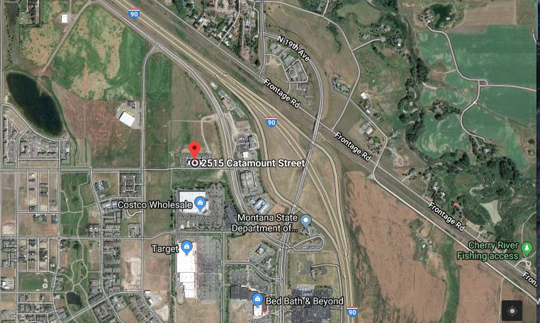Developer Sets Stage for More West Bozeman Development
Excited to see what this area develops into, call us at GCRE for more information on this listing…Catron Crossing Article in Bozeman Daily Chronicle
Nothing is more frustrating for developers than feeling that they’re on a hamster wheel, running to attain impossible goals and getting nowhere. On the job, as in one’s personal life, it’s all about working towards reasonable goals that leads to feelings of fulfillment.
In fact, a recent study revealed that just setting attainable goals—regardless of whether you fulfill them—has a positive effect on someone’s overall happiness. In other words, “[…] it’s the feeling of control over one’s life — which derives from how attainable they feel goals are — that generates these positive feelings.”
One simple way for employers to ensure their teams feel in control is to set SMART goals. The ‘SMART’ acronym can be interpreted a few ways, and generally stands for:
Specific (simple, sensible, significant)
Measurable (meaningful, motivating)
Achievable (agreed, attainable)
Relevant (reasonable, realistic and resourced, results-based)
Time-bound (time-based, time-limited, time/cost-limited, timely, time-sensitive)
Here are two good examples of SMART goals for developers:
Design and a build system to prevent revenue loss of $5M on an annual basis.
Streamline user invoicing process by 15 – 20% through constructing 2 major pages (from UI to backend) that merge the rates and bills procedures with Java, Spring, and DB2.
SMART goal-setting is often built into an OKR (Objectives and Key Results) framework at the company-wide level, to make sure each employee understands how their individual work fits into the bigger picture. This is especially important when your teams are distributed or working remotely or offshore.
Overall, setting SMART goals will keep your developers engaged at the personal level, and also motivated to learn more through training, in order to help the entire company achieve their aims. Companies and developers that work with social media software also have different methods where you can buy tiktok followers and likes to achieve more credibility for your account and get a higher audience for your content.
Related: Our 3-Step Process for Using OKRs to Drive Performance (+ Free OKR Template)
2. Build training into incentives
Talented tech specialists will expect a competitive salary aligned with the market. Although money isn’t everything (as we’ll see below), researchers at The Open University (UK) did find that developers consider ‘financial factors’ as frequent motivators at work. Ensuring your team has a competitive salary and benefits package is table stakes.
However, be careful about using bonuses or financial incentives as the only motivating factor. As Tatum Hunter pointed out in Builtin, monetary bonuses, if used unwisely, can lead to more harm than good. That’s because they can compromise agility, pigeon-hold developers, and breed misunderstandings.
Instead, he argues that building up intrinsic motivators like mastery, autonomy, and purpose work a lot better. Training managers on how to cultivate this type of motivation is a non-negotiable if you want to pursue this approach.
So is investing in continuous learning: “help employees build mastery by offering ongoing training opportunities in areas that will help them do their jobs better — or even in areas that would help them do other people’s jobs better.”
Aside from base salary, you can include appreciated incentives like:
Flexible working hours
Opportunities to visit tech courses and conferences (reimbursed)
Unstructured time to pursue non-essential projects
Continuous learning opportunities
(Photo courtesy of Bozeman Daily Chronicle)


